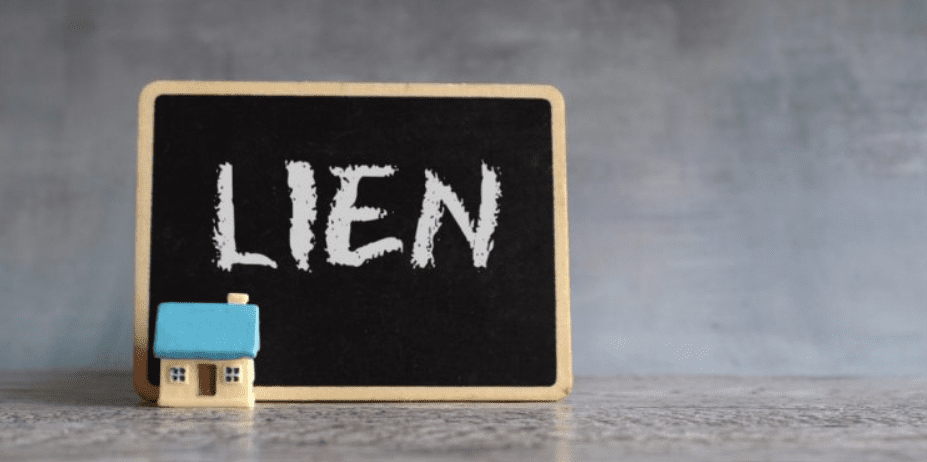Demystifying Tax Liens: Their Impact on You Unveiled

When it comes to financial matters, tax liens are a topic that can have a significant impact on individuals and businesses alike. And that makes tax liens a very critical part of taxes!
Understanding what tax liens are and how they can affect you is crucial in the tax market. But you can ask, what tax liens are? They are legal claims imposed by the government on assets or properties of those who fail to pay their dues. But, that’s not enough description, right? Read more to understand what they are and how they impact you!
What Are Tax Liens?
A tax lien is a legal claim that the IRS imposes on a property or other assets of a taxpayer who fails to pay their taxes on time.
It serves as a security interest for the IRS to recover unpaid taxes. And there is bad news that comes with a lien. Meaning, when it is filed, it becomes a public record. This can be a big reason why a taxpayer’s creditworthiness will be negatively identified.
The Role of IRS Tax Professionals
At times when you face a tax issue, professional assistance is highly recommended. IRS tax professionals are experts in tax laws and regulations, and that’s part of the reason why they provide invaluable guidance and support throughout the process. These professionals are well-versed in tax lien matters and can help people steer all their tax-related issues.
Understanding Payroll Tax Settlement
Payroll tax settlement is the resolution of outstanding payroll tax liabilities with the IRS. The businesses that fail to pay their dues can face acute consequences including the issuance of tax liens.
Payroll tax settlement involves negotiating with the IRS to reach an agreement on paying unpaid taxes, penalties, and interest. Well, businesses must address payroll tax issues as promptly as possible to avoid further complications.
Impact of Tax Liens on Taxpayers
Tax liens can have far-reaching consequences for you if you don’t take them seriously now. Some of the significant implications include:
- Credit Score Impact: A tax lien now attached to your record can impact your credit score, making it difficult to obtain loans, credit cards, or favorable interest rates.
- Difficulty Selling or Refinancing Property: At times when a tax lien is attached to your property, it obstructs your ability to sell or refinance it. This means that buyers or lenders may be reluctant to engage in transactions involving properties with tax liens.
- Limited Access to Credit: With a tax lien on your record, getting credit becomes tough. Lenders and creditors may view you as a higher risk, limiting your access to loans or lines of credit.
- Inability to Obtain Certain Licences or Permits: Tax liens prevent your ability to obtain specific licenses or permits required for certain professions or business operations. This makes addressing these tax issues promptly to avoid such restrictions.
Intent to Levy: Understanding the Severity
When taxpayers repeatedly fail to address their tax liabilities, the IRS may issue an “Intent to Levy” notice.
An intent to levy is a very serious matter and it indicates the IRS’s intent to seize the taxpayer’s assets to clear the outstanding tax debt. It is a last resort for the IRS to collect unpaid taxes.
This makes it very important to take prompt action when receiving an intent to levy notice to prevent asset seizure.
Dealing with Tax Liens Effectively
Dealing with tax liens requires proactive measures and careful consideration. Here are some steps to take if you find yourself facing a tax lien:
1. Consult with IRS Tax Professionals
Get help from IRS tax professionals when you want a clear view of your rights and options. They are the experts you want to trust when assessing your situation, providing guidance, and helping you develop a strategy to address the tax lien effectively.
2. Negotiate with the IRS
The IRS offers various options for resolving tax liens and settling outstanding tax debts. These options include:
- Installment Agreements: Setting up a payment plan with the IRS allows you to pay off your tax debt every month depending upon your financial circumstance.
- Offer in Compromise: Under certain circumstances, the IRS may accept a reduced amount to settle your tax debt. This option requires you to show that paying the full amount would cause financial hardship.
- Release of Lien: In case you can show evidence that the tax debt has been fully satisfied, the IRS may release the tax lien, removing it from public records.
Working closely with IRS tax professionals can help you navigate these options and negotiate the best possible outcome.
3. Address Underlying Tax Issues
Resolving the tax lien is only part of the solution. It is essential to address the underlying tax issues that led to the lien in the first place.
This involves ensuring accurate tax reporting, record-keeping, and compliance with tax laws and regulations going forward.
By staying proactive and organized, you can prevent future tax problems and maintain a strong financial standing.
4. Rebuild Your Credit
Once you have successfully resolved the tax lien, it’s important to take steps to rebuild your credit. This can be done by:
- Paying Bills on Time: Consistently paying your bills, loans, and credit card balances timely shows responsible financial behavior.
- Monitoring Your Credit: Regularly monitoring your credit report allows you to stay informed of any changes or errors that may affect your credit score.
- Using Credit Wisely: Using credit responsibly and keeping your credit utilization low can positively impact your credit score over time.
Bottom Line
Tax liens indeed have a very substantial impact on the financial situation, affecting creditworthiness, financial stability, and access to various opportunities. And that is the primary reason why understanding tax liens and their implications is critical for steering tax-related challenges efficiently.
You can seek help from IRS tax professionals, negotiate with the IRS, and address underlying tax issues. By doing so, individuals and businesses can reduce the impact of tax liens and regain control of their financial standing.
Catch is, when you face tax issues, act promptly, stay informed, and seek professional guidance. By taking the necessary steps, you can overcome tax challenges and pave the way for a more secure financial future.





